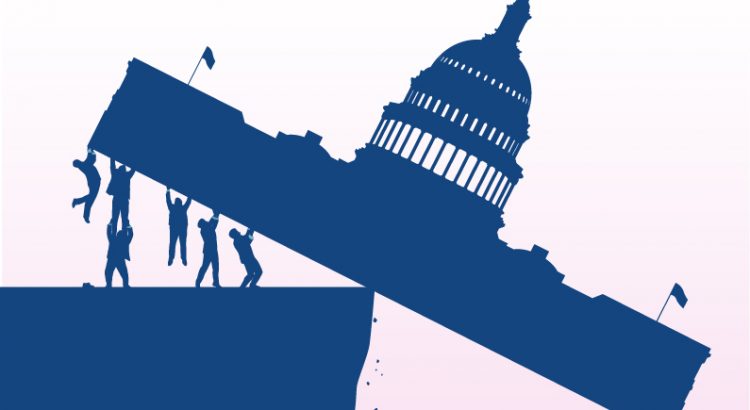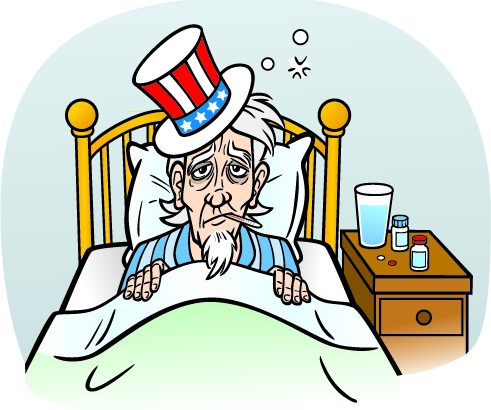“North Carolina’s current system of gerrymandered voting districts is indeed harmful. Undemocratic and alien to American values, gerrymandering – drawing electoral districts to favor certain parties and minimize competitiveness of general elections – also undermines our society in many ways. The answer to this problem, we believe, may seem counterintuitive, but is compelling: convince non-Republicans to register Republican or, almost as usefully, Unaffiliated,” write economics professors Charles Becker, Bruce Caldwell, Edward Tower and Michael Munger.
Read More in The Charlotte Observer
Boiling Down the GOP Health Care Plan
“In summary, this bill is a tax cut for high income folks that is funded by cuts to the Medicare program as compared to the ACA new baseline. In addition, it provides a fundamental change of the federal governments financial commitment for Medicaid which weakens the safety net we have, while wiping out coverage gains from Medicaid expansion,” writes health policy scholar Don Taylor.
Read More on the FreeForAll Blog
GOP Health Care Plan: ‘Seems DOA in 24 Hours’
Health policy scholar Don Taylor talks about the new Republican plan to repeal and replace the Affordable Care Act (7 minute mark). “My first thought was, ‘It took you guys six years to come up with this?’ And it seems DOA in 24 hours. I think what it shows is there’s really never been a consensus in the Republican Party about what to do about health care policy other than to counter-punch the Affordable Care Act.”
Watch on TWC’s “Capital Tonight”

Why A Russia Probe May Make The Left Squirm, Too, Not Just The Right
“If conducted thoroughly and impartially, the Russia probe could generate not just answers to troubling questions, but also thoughtful and even cathartic discussion. However, everyone should be prepared — regardless of where they may be on the political spectrum — for moments of real discomfort. But maybe that’s exactly the right prescription these days for America’s profoundly distressed political environment,” writes law professor Charlie Dunlap.
Read More in The Hill
Trump’s Allies Keep Talking About the ‘Deep State.’ What’s That?
Political scientist Timur Kuran, who has also studied the dynamic in Turkey, says leaks would only be evidence of a Deep State if there was definitive proof they were all interconnected and connected to a conspiratorial plot. There is no evidence of that. “(Leaks are) evidence of people upset with the bureaucracy and upset with individual policies, but doesn’t in itself point to an organizational hierarchy to systematically undermine the government.”
Read More in TIME
As Trump Targets Carbon Rules, Green Groups Promise a Legal Fight
With President Trump poised to issue an executive order aimed at undoing a key pillar of the Obama administration’s climate-change agenda, environmental activist groups have joined forces for what they say will be a tooth-and-nail legal battle that could drag on for years. “Altering a final rule, like the Clean Power Plan, isn’t as simple as the stroke of a pen. It will likely require the EPA to undertake a new rulemaking process including public notice and comment that could last a few years,” says Tim Profeta, director of the Nicholas Institute for Environmental Policy Solutions
Read More in The Washington Times
Millions Risk Losing Health Insurance in Republican Plan
Millions of people who get private health coverage through the Affordable Care Act would be at risk of losing it under the replacement legislation proposed by House Republicans, analysts said Tuesday, with Americans in their 50s and 60s especially likely to find coverage unaffordable. The result, says health policy professor Donald Taylor, is that people who buy coverage are sicker, causing the cost of premiums to soar. “This looks like to me adverse selection on steroids,” he says. “I don’t see how it doesn’t crater the individual market.”
Read More in The New York Times
What Trump’s Pending Budget May Slash at EPA
Congress is awaiting President Donald Trump’s budget proposal with the details about his vision of government. According to some reports, the Environmental Protection Agency may lose as much as a quarter of its budget. One of the EPA’s programs, Energy Star — it puts those labels on appliances — could be slashed. Billy Pizer, a professor of environmental sciences and policy, is interviewed.
Listen on “Marketplace”
Trump’s Streamlined Travel Ban Still Faces Headwinds
“Even though this order is calmer, more professionally executed, and less likely to cause mass chaos that its predecessor,” says professor David Schanzer, director of the Triangle Center on Terrorism and Homeland Security, the order “symbolizes that America fears engagement with the outside world and believes national security is advanced by building barriers that isolate America.”
Read More in The Christian Science Monitor
Rumblings Of A ‘Deep State’ Undermining Trump?
President Trump’s allegations that former President Barack Obama tapped his phone and his assertions that the bureaucracy is leaking secrets to discredit him are the latest signs of a White House preoccupation with a “deep state” working to thwart the Trump presidency. “Nixon shared a similar kind of distrust of the government and felt the government was out to get him at points,” says political scientist Peter Feaver, a former national security aide to President George W. Bush. “President Trump’s view seems to be more on the Nixon part of the spectrum. …”
Read More in The New York Times

Trump’s Claim About Terrorism Convictions Since 9/11
If terrorism includes any act of violence motivated by politics, then you would include both the ideologies of al-Qaida and ISIS, as well as the ideologies of white supremacism, says Sanford School professor David Schanzer, director of the Triangle Center on Terrorism and Homeland Security. “If you look at the phenomenon of terrorism as a whole, then there are a lot of citizens committing terrorism, whether connected with foreign organizations or ideologies or domestic ones,” Schanzer says.
Read More in PolitiFact
Why So Many Evangelicals Support Trump
“By surrounding himself at his election rallies with flags, songs and people who symbolized American values, candidate Trump evoked a sense of priestly leadership that many found appealing,” writes Donald Woolley, a senior research associate in psychiatry.
Read More in The Hill

